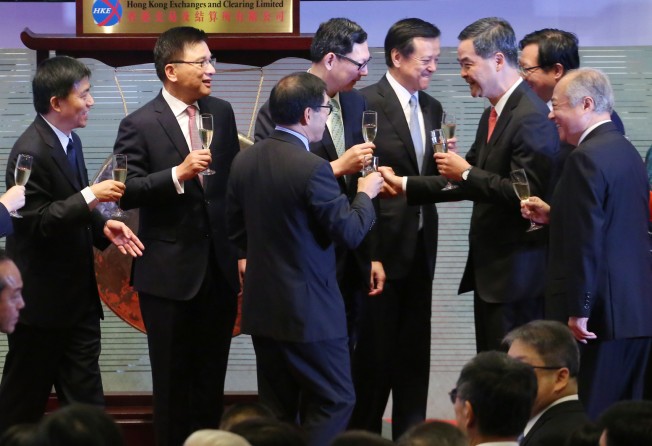Lessons from the mainland: Keep an eye on policy, profit through the Stock Connect

I have a particular fondness for train journeys, especially at this time of the year when I find myself drawn to model train sets winding their way around holiday villages in shopping malls.
But the train journey that has really grabbed my attention this last month is the northbound-southbound investor ride on the Shanghai-Hong Kong Stock Connect.
For weeks leading up to its official launch date last week, this particular through train was the talk of the town. Investors on the northbound journey even hit their trading limits on Day 1.
Why most of the traffic is headed north makes perfect sense. After all, Chinese stocks are cheap relative to their peers.
“If you are talking about fundamentals, the Shanghai Composite is now trading at nine times P/E whereas the Hang Seng is trading at something 10.3 times P/E,” said Dickie Wong, research director at Kingston Securities. “So if the stocks in Shanghai are trading so much lower than people are naturally thinking, why not buy in Shanghai?”
Now add to this the fact that the correlation between the Shanghai composite and the MSCI All-World Country index is 0.1, the lowest among major equity markets. That has to be good news for local investors looking to diversify their portfolios with Chinese stocks.
But Alex Wong, Director of asset management at Ample Capital believes that for longer term diversification, you have to get comfortable with the foreign exchange risk.
“China has a relatively high cost of funds which makes their equities cheap. They are also very policy sensitive. Initially people would have some interest in China but their assumptions are based on a stable renminbi,” says Alex Wong. “In the long term I might be sceptical about China’s policies.”
Indeed Chinese stocks proved how they dance to the tune of a domestic policy agenda when the Shanghai composite surged last Friday on news of the People’s Bank of China (PBOC)’s surprise interest rate cuts for the first time in two years. (http://www.bloomberg.com/news/this year-11-25/china-stock-index-futures-little-changed-amid-ipo-rate-outlook.html)
Mainland investors immediately took profit by becoming sellers of Hong Kong stocks through the city’s bourse link. This is after having taken up 6 per cent of daily buying quotas in the programme’s first week.
And historically PBOC governor, Zhou Xiaochuan is known for overseeing two tightening cycles and two easing cycles for a total of 22 moves to the one-year lending rate, and 20 moves to the one-year deposit rate since he took office in 2002. So it’s not likely that his latest cut will be a one-off. Analysts are expecting that there will be further rate cuts as soon as in the first quarter of next year.
If that happens, it could likely translate to another bump up in Chinese stocks – and the sectors that are most poised to benefit are the debt-laden infrastructure stocks. “It’ll be the traditional sectors – construction, housing; with the deposit rate also cut it’s not really going to help retailers or the consumers,” says Nitin Dialdas, the Chief Investment Officer of Mandarin Capital.
So what then is the takeaway for lay investors here in Hong Kong?
Two things. Firstly Chinese stocks are cheap relative to Hong Kong stocks, so as Dickie Wong says, why not buy them now. Secondly, buy stocks in the mainland’s infrastructure sectors, because if indeed another rate cut is coming, these are the ones that are most likely to benefit from the Shanghai Composite shooting up again in the short term.
Perhaps the lesson to learn from our policy sensitive mainland neighbours is that we all have the opportunity to take profit through the link if we act at the right time.
No harm in some extra pocket money before the Lunar New Year shopping season.